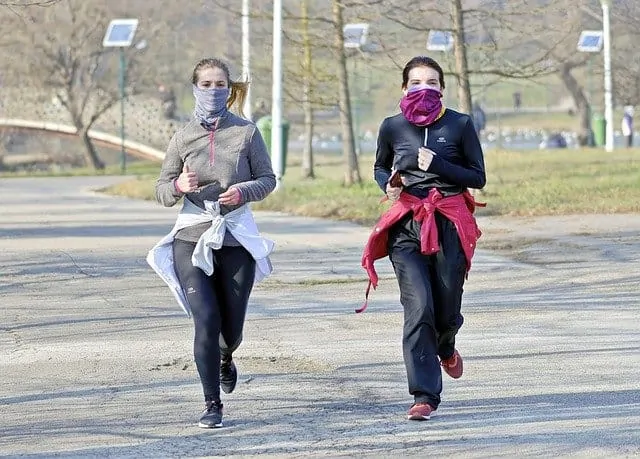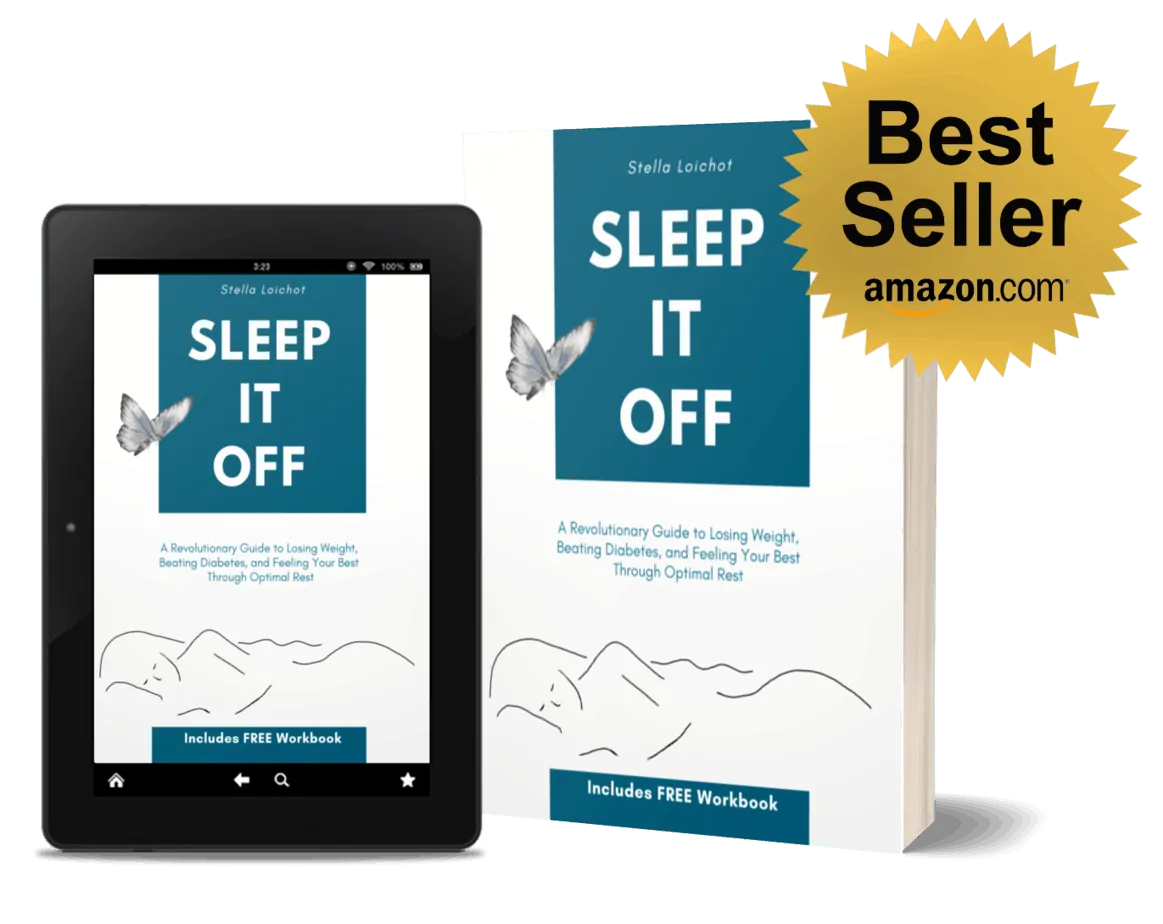A study published in June 2020 suggested a 37% increase in the rates of clinical insomnia from before COVID-19 to the peak of the pandemic. There is no doubt that sleeping has been a challenge for many adults (and even children) since March 2020.
Among other things, COVID-19 has us worrying about finances, employment, social isolation, and of course, about the health of our loved ones and our own health. There is also the time crush due to juggling remote work, home schooling, and other family obligations. To make things even worse, there is the lack of physical activity and meaningful connections due to social distancing and confinement. Finally, there is the constant exposure to screens and technology due to telework and virtual meetings.
For a while, unfortunately, this is going to be our reality. So, what can we do to protect our sleep and still be able to feel restored and rested every morning?
Let me share with you 3 important steps to get you started.
Expose Yourself to Natural Light
You have probably heard of melatonin, also called the sleep hormone. Without melatonin, we don’t sleep. Pretty straight-forward, right?
To encourage melatonin production, our body needs to know the difference between day and night by changes in light in our surroundings. If we stay indoors all day (working on a computer for instance) and then stay indoors at night (watching TV or browsing the internet), our body won’t know when it’s time to sleep. In such a situation, the light doesn’t change as time goes on; it is just a steady light coming from screens and indoor lights and it is very confusing to our system.
For our body to know the difference between waking hours and sleeping hours, we need to give it plenty of cues that will help differentiate day from night. This is the best way to experience the increased melatonin release that occurs when we naturally transition from daylight to darkness.
That’s why it is critical to get as much natural light exposure as possible during the day, and then dim the lights and turn off our screens at least two hours before bedtime. Of course, we still need to be wise, stay safe, and protect ourselves from the sun.
Go Outside!
Being outdoors as much as possible is one of the most critical steps to take if you want to improve your sleep. You don’t have to live in the countryside to be outside. The light in a city or in the suburbs is still natural light!
Furthermore, you can find ways to increase your outdoor time without much change to your schedule. For example, maybe you could walk places when you are running errands. You could sit by an open window, or pace in the yard or on the deck when you are making phone calls. Maybe you can go have lunch on a bench in the street instead of eating in front of your computer.
Try to find all the possible ways to be exposed to natural light. Not only will it show your body an apparent difference between day and night, but it might also increase your Vitamin D production. Considering that Vitamin D deficiency can lead to difficulty sleeping, you will kill two birds with one stone, which is significant during busy times.
Think "Luminotherapy"
Some people use luminotherapy in the morning to make sure their body knows it is time to wake up. This can be helpful, especially if you suffer from seasonal depression. If you use luminotherapy (you can easily find lamps or glasses online), make sure you do so as soon as you get up in the morning. During breakfast, for instance. Don’t wait until the day is halfway through, or you will confuse your system even more. Some alarm clocks have a dawn simulator that starts before the alarm goes off so that your body gets the message that it will soon be time to wake up, even if it is still pitch-black outside.
Move your body throughout the day
To be able to sleep at night, we need to give our body a chance to produce sleep-promoting molecules, also called hypnogenic molecules. These sleep-promoting molecules are released all day long while we are awake, and the amount released depends on how active we are (mentally and physically). Once enough of these hypnogenic molecules have built up in our body, we get sleepy.
Exercise can help us fall asleep more easily at night and sleep better through the night because physical activity increases the production of adenosine, which is one of the sleep-promoting molecules. One of the reasons why so many have been struggling with sleep during the COVID-19 pandemic, is that they have lost their workout routine as gyms and pools have closed and as team sports have been limited.

It is critical to find easy ways to be physically active. Whether it looks like hiking in nature, doing yoga in the yard, dancing in the kitchen, walking to the store, mowing the lawn, or cleaning the house, you want to make sure that your body is moving every single day and several times per day.
I often hear from my clients that it is hard to carve an hour of physical activity every day. I hear you! It is indeed VERY hard to carve that much time in one go. But what about 10 minutes? That might be more manageable and you can do it several times over the course of a day. Just make sure you are very intentional about this and plan the night before what you will do the next day to move your body. Otherwise, chances are it won't happen.
Create a "Peace of Mind" Plan
Daylight and exercise are two aspects of the problem. But most of us also have to deal with some pretty high levels of worry, overwhelm, and fear. It creates chronic stress, which is one of the biggest obstacles to good sleep.
How can you beat all that stress?
The very first step is to identify all the issues you worry about but over which you have no control. Keep reminding yourself that worrying over these is not helpful. I know, it's easier said than done, but having that list in writing is a great first step and chances are, there are a few of these stressors that you will be able to eliminate relatively quickly.
Once you are done with the first list, write a second list of all the fears over which you do have some control. It can be long, or it can be short. Just have an honest inventory of what keeps you up at night.
For each fear, identify the very worst thing that could happen and write it down. Sometimes, doing this is enough to help you relax because you realize that the worst-case scenario is, in fact, not that bad.
Then, for all the things that are still worrisome, lay out the steps you need to take to make sure that the worst-case scenario will not happen. Depending on the situation, you might want to have several back-up plans in place. Often, having these plans written in as much detail as possible will allow you to let go of some of your fears. And if you act on these plans and take steps to solve the problems that are at the root of your worries, you will be in a better place to avoid a lot of emergencies in the future.
No matter what keeps you up at night, looking at your potential problem in a matter-of-fact manner can help ease the stress and give you a better sense of power and control.
Many Reasons to Lose Sleep
Of course, these tips will not eliminate all the factors that make it harder for us to sleep, but it's a place to start. Don't try to tackle everything at once, otherwise it will be even more overwhelming and stressful. Pick one change to make today and try to implement it for a couple of weeks. See where that takes you. Then move on to the next change that you can make in your daily life.
What Else Keeps You Up?
Maybe it's not COVID-19 that directly affects your ability to sleep. Maybe you are overworked and feeling that you are losing grip on life. If that’s the case, I know what you are going through and have another blog article in the making right now, which I will send to you as soon as it’s ready. It will come with lots of tips to help you set boundaries between work-from-home and personal life. Make sure you don’t miss the next article. If you haven’t done so yet, follow this blog!
For many more ideas and step-by-step action plans to improve your sleep, check out my new book SLEEP IT OFF, A Revolutionary Guide to Losing Weight, Beating Diabetes, and Feeling Your Best Through Optimal Rest. It is available for purchase on Amazon.

